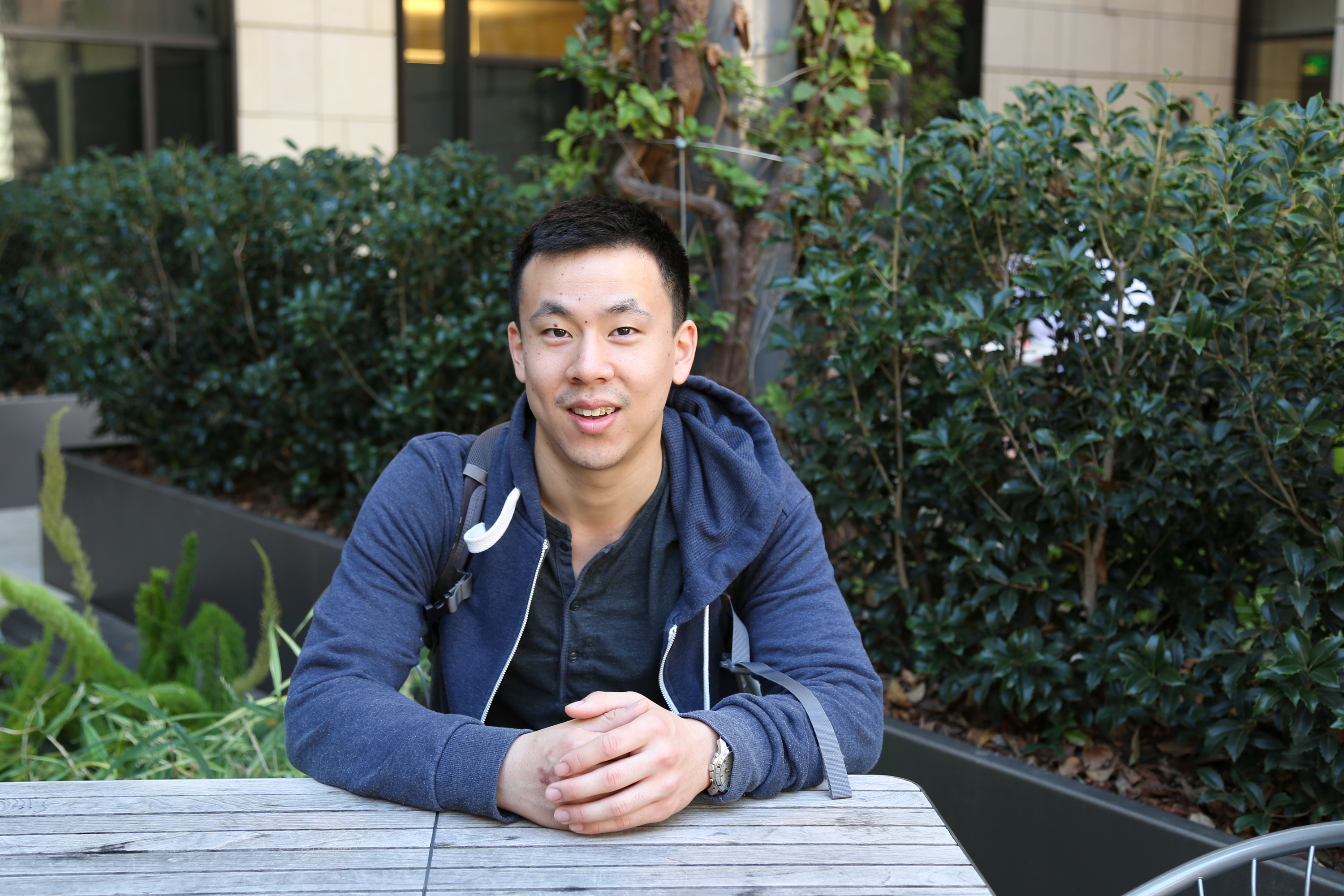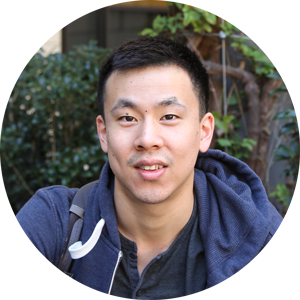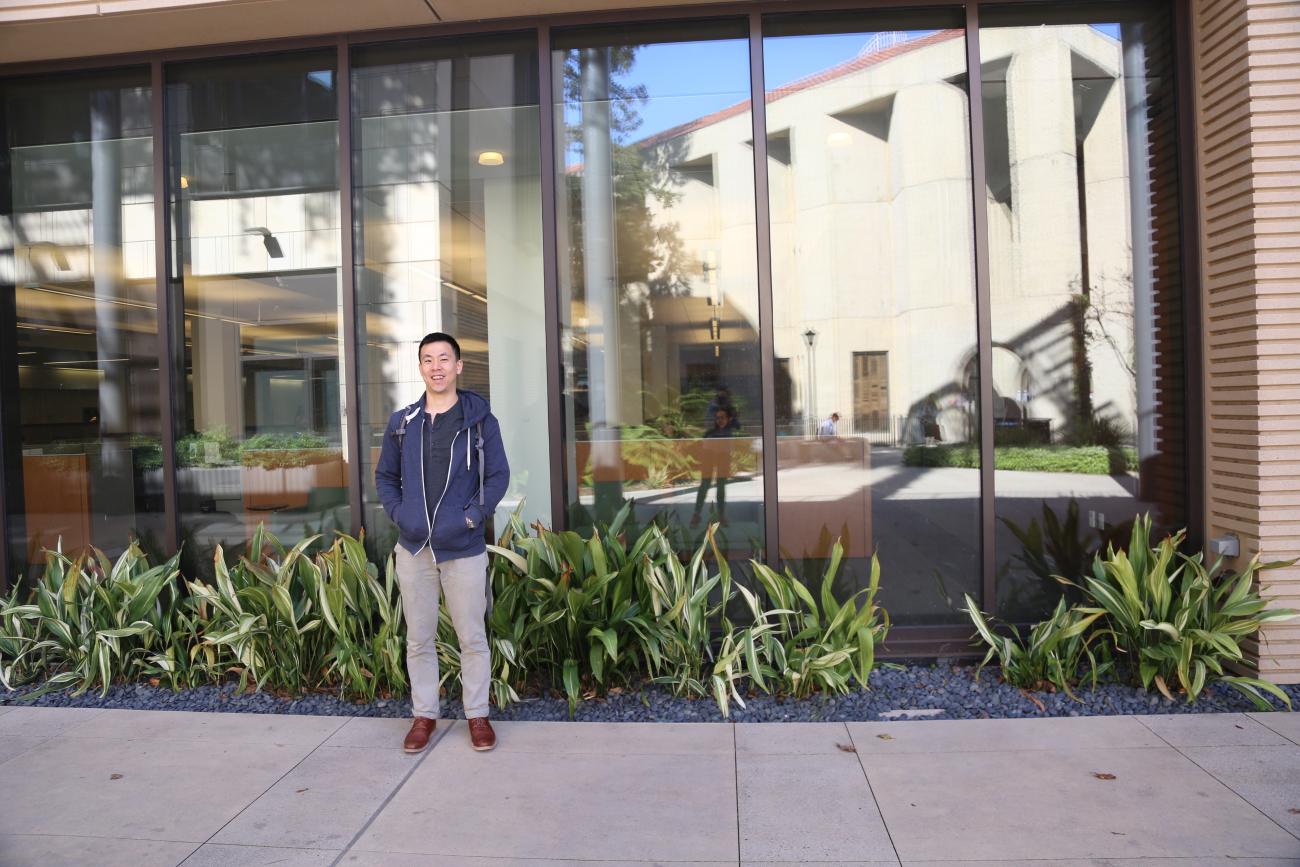
Joshua Ling
What’s unusual about ICE?
The ICE master’s program gives students a chance to work on a major research project. It’s an intense and rewarding process, and it’s also a unique opportunity to develop and hone your research skills. In addition, because of ICE/IEPA’s small cohort size, we’re a tight knit group that loves hanging out with each other. Just two weeks ago, we had a sushi-making party!
How would you describe the other students in your program?
Like all Stanford students, they’re intelligent and driven. However, what sets them apart is the diverse international perspectives and experiences that they bring. They come from all around the world, and they are all inspiringly passionate about improving education on a global scale. They also bring the best potluck food.
Any highlights from the first two quarters that you’d like to share?
One of my favorite moments of the fall 2015 quarter was when I went with Stanford Ed Club to the Oakland Startup Weekend Education event. I formed a team of four with teachers and engineers from around the Bay Area, and over the weekend, we created an online marketplace, called edSwap.org, for educators to connect with each other to get what they need. It was an incredible experience to be around so many bright people who were passionate about innovating to improve education for teacher and students.
What are your career plans?
I’m passionate about doing international development work in the long run, but for the next few years, I’d like to explore the opportunities in the edtech industry.
Tell us about a member of the GSE faculty who has made an impression.
Gay Hoagland has an uncanny ability to connect deeply and personally with students, encourage them, and then inspire them to face and conquer the daunting challenges in education.
What drew you to the field of education?
As an undergraduate student, I had the privilege of volunteering at an after-school mentorship program for low-income youths. During this time, I was exposed to the deep inequities that existed in our education system, and I wanted to be a part of the solution.

What were you doing prior to applying to the GSE?
I studied finance at University of Texas at Austin. After I graduated, I taught 8th grade math in Fort Worth at a school called Uplift Mighty.
What advice do you have for students who are trying to decide to come to Stanford GSE?
Find current students or alums who have been through the program you applied for and set up a brief meeting with them. There’s nothing like getting personal, undiluted insights about someone’s experiences.
Any tips for incoming students to help them get the most from their time at Stanford?
Figure out what courses you’d like to take and sign up early for them. Stanford is great at offering students a diverse set of courses from a broad range of disciplines, but several of the highly coveted courses have applications or require you to get the instructor’s consent. Talk to both graduate and undergraduate students to get recommendations on what courses to take. Try to take a good mix of project-based courses and courses that are more grounded in theory. Also, check out Thai Cafe; it’s the best.
This interview was conducted via email in February and March 2016.

